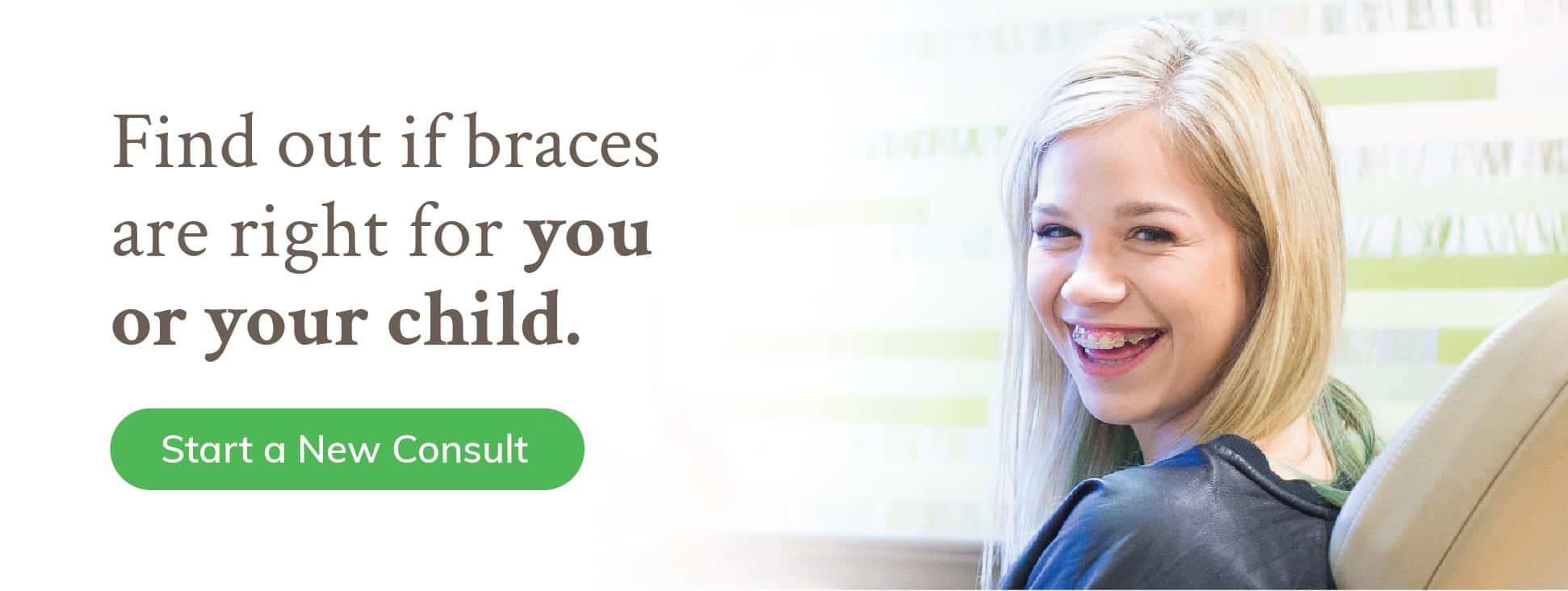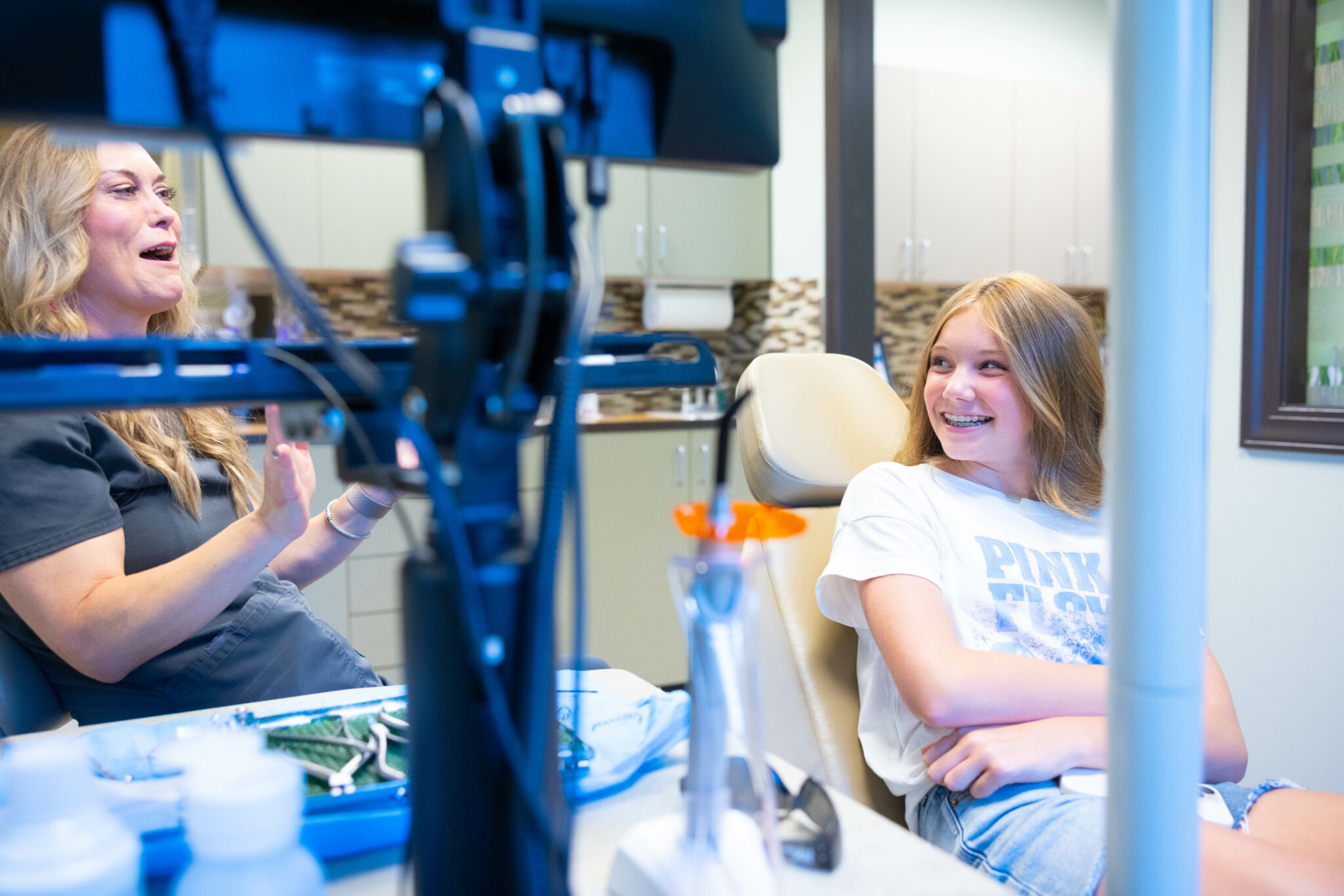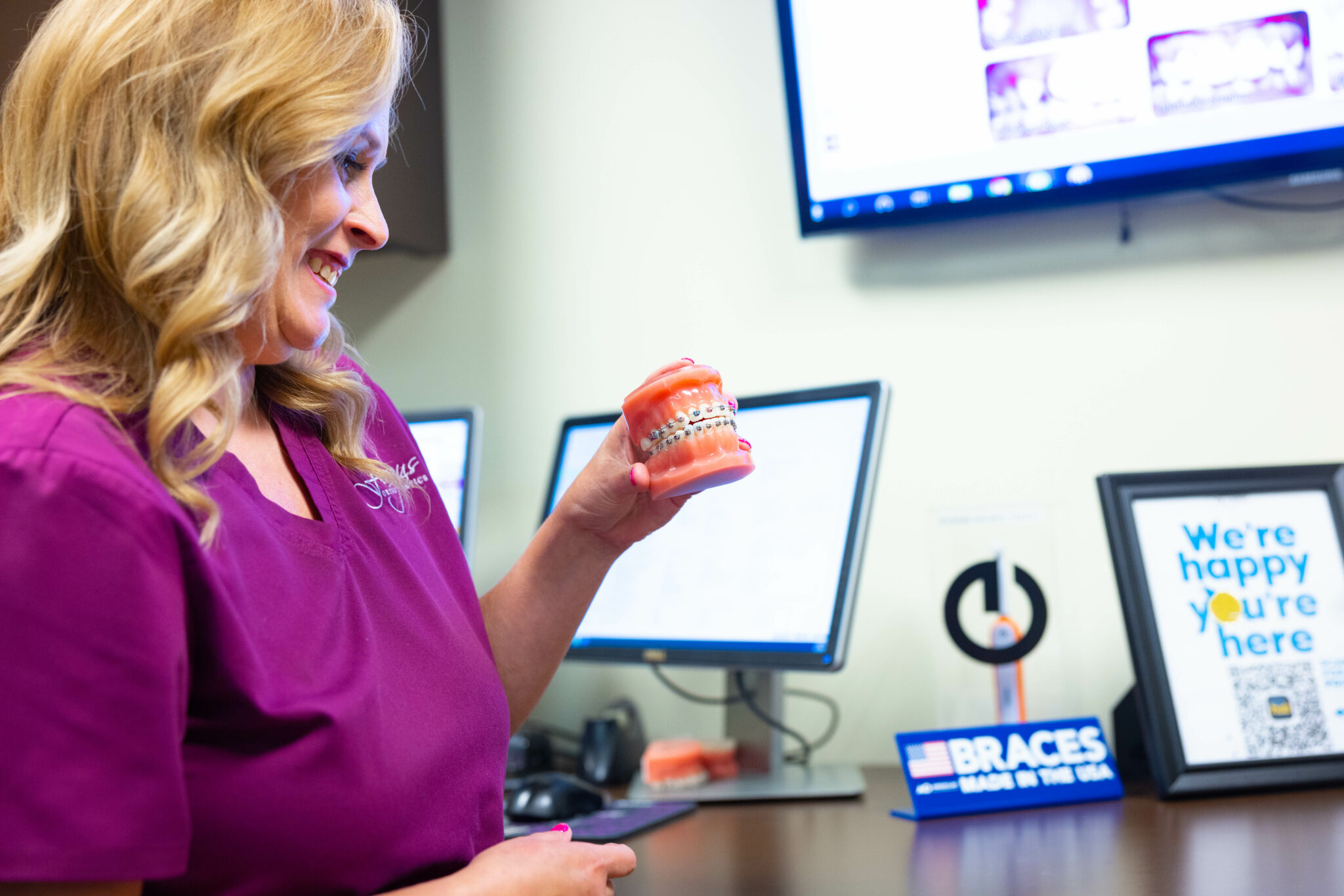Most infants have a habit of either using a pacifier or sucking their thumb, or maybe both. As they age, they usually drop the habit. But what happens if they continue to suck their thumbs? Did you know it can have a very detrimental effect on your child’s mouth?
Fergus Orthodontics has observed the effects of thumb sucking on teeth. Thumb sucking and orthodontic issues are common and can cause problems with speech, breathing, and digestion, among other issues. Breaking a thumb sucking habit is important, but how do you do it? We have a few suggestions.
Why Do Children Use Pacifiers or Suck Their Thumbs?
What is the psychology behind thumb-sucking? Most children at an early age — and even some adults — suck their thumb. Why do they do it?
Infants use pacifiers and thumbsucking to develop feeding skills, practice sucking reflexes and learn how to move their mouths. It also serves to comfort them, reminding them both of the bond with their mother during breastfeeding and the enjoyment of eating.
As the child grows older, thumb sucking and pacifier use become comfort mechanisms. It reduces anxiety and relaxes them, which is why children often suck their thumbs at night. As the estimated 1 in 10 adults who suck their thumbs, the act is a habit that they’ve been unable to break.
It’s a habit that should be broken, however, and the sooner, the better. Otherwise, your child could need braces treatment to repair their teeth.
Early Oral Habits and Dental Development
Repeated pacifier use and thumbsucking puts pressure on the teeth and jaws they weren’t designed to have. This pressure can cause problems for the still-developing jaws in young children.
The thumb or pacifier presses against the roof of the mouth, which can distort it and move it upward into the nasal cavities. This can narrow the nasal passages. Not only can it make breathing more difficult, but it can contribute later to breathing problems such as snoring, sleep apnea and even a deviated septum.
Thumb sucking and malocclusions — or bad bites — are commonly linked, as are pacifier use and bite problems. Thumb sucking and facial development are tied because the thumb causes the teeth to move to make room. The sucking causes motion that can move the teeth forward and outward.
Many children who don’t break their thumbsucking or pacifier habits later develop the following issues:
- Overbite
- Open bite
- Deep bite
- Problems biting with the front teeth
- Problems chewing food properly
- Digestive issues from improper chewing
This is why breaking the thumb sucking habit is vital by the age of 2. After that, the jaw can develop incorrectly, leading to a need for orthodontic treatment later.
5 Ways to Help Break the Thumb-Sucking Habit
Now that you know when to stop pacifier use and thumbsucking, the question is how best to do it. It can be a tough habit to break, especially the longer you wait to break it. The goal is to try to do it in positive ways. Punishing a child could lead to more anxiety and a greater need to continue the habit.
Here are a few suggestions on helping your child to break their pacifier or thumbsucking habit.
Helping the Child to ‘Grow Up’
Most children will grow out of the habit, but it can help if you encourage the child to ditch the thumb or pacifier as a sort of rite of passage. Let them know that getting rid of the pacifier or ending the thumbsucking is a step to show that they’re “getting big.”
There are ways to put a positive spin on it without shaming them for a “baby” habit. But most children will see this for themselves and often will abandon the habit themselves.
Give a Gold Star
Set up a calendar for the child, perhaps on the front of the refrigerator or in their room. Give the child a gold star or a sticker for each day they go without a pacifier or thumbsucking. If they go a whole week without, reward them with a coloring page or a walk together outside.
If your child can go a month or more without resuming the habit, there is a good chance they’ve broken it for good. Perhaps celebrate the accomplishment with a whole coloring book or a trip to the park.
Use a Glove or Sock
Sometimes, making the thumb unavailable can break the habit quickly. Try having the child wear gloves or socks on their hands for a few nights. It can help them to break their habit quickly.
Thumbsucking Nail Polish
For tougher cases, there is a nail polish available designed to help the child stop sucking their thumb. It’s completely nontoxic, but it’s very bitter. It will make thumbsucking very unpleasant, and they’re likely to quit fairly quickly.
We have heard of similar “home remedies” such as using hot sauce or even substances like quinine. We do NOT recommend you use these, as they can harm your child or, in the case of the hot sauce, cause pain.
Orthodontic Appliances
If your child is older and still hasn’t outgrown the habit, there are orthodontic appliances available that can help your child end their habit. While this may be considered a last resort, it’s usually a very effective one.
Fergus Orthodontics can place a tongue crib in your child’s mouth. We often do this as part of two-phase braces treatment or in preparation for braces treatment for the child.
A tongue crib serves two primary purposes. The first is to end any thumbsucking habit by placing a “basket” just behind the upper central incisors, blocking the placement of the thumb against the palate.
That basket serves a second main purpose, which is to reposition the tongue away from the back of the teeth, a common issue among thumb-sucking patients. The pressure of the tongue against the teeth pushes them outward, creating an open bite or an overbite.
The tongue crib pushes the tongue back, allowing the teeth to move backward once braces are placed on them. It trains the tongue to rest properly against the roof of the mouth.
We’ll be happy to help you with any of these options so that you can help your child end their pacifier or thumb-sucking habit before their mouth is severely damaged.
Orthodontic Treatment and Thumbsucking
Some children will need orthodontic treatment to repair the damage that thumbsucking or pacifiers have caused. Fergus Orthodontics in Jonesboro, AR, can offer treatment to repair your child’s bad bite and restore their oral health.
It’s recommended your child consult with an orthodontist by age 7. If your child had a long thumbsucking or pacifier habit, we strongly recommend you have them see an orthodontist.
We can repair the damage caused by the thumbsucking habit and get your child back on the road to a beautiful, healthy smile that will last them a lifetime.












